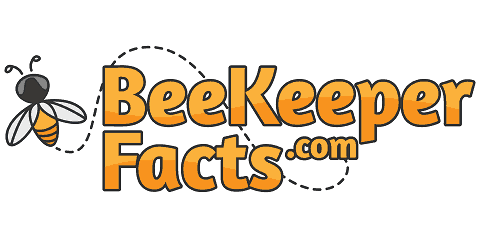Why Do Beekeepers Collect Pollen? Is It Harmful?
Another common practice by some beekeepers is the collecting of pollen from their bee colonies. Collecting pollen has become more popular over the past several years but it’s quite time consuming. So why do beekeepers go to the trouble of collecting pollen?
Beekeepers collect pollen to provide high quality protein for their bees, sell to consumers for potential health benefits, and to identify species of pollen collected by bees in their region. Collecting pollen is very labor intensive and if done incorrectly can be harmful to bees.
Collecting pollen is another aspect of beekeeping that isn’t discussed quite as much as honey extraction, pollination services, and raising queens to name but a few. But if you are interested in collecting bee pollen, I’ll explain in more detail why to collect bee pollen and how to actually do it.
Why Beekeepers Collect Bee Pollen
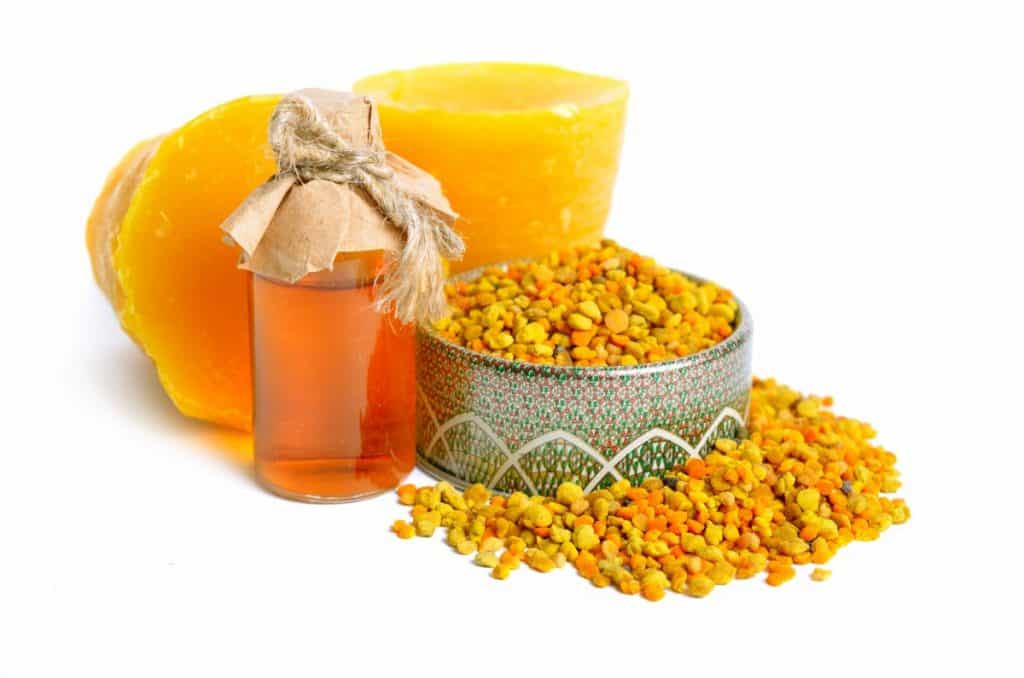
Beekeepers collect bee pollen for 3 primary reasons:
1. High quality protein for your bees – some beekeepers will save the collected pollen for supplemental feeding. The bee pollen is used to make pollen patties to help feed their bees when there is no pollen or nectar available.
This is more commonly done by hobbyist beekeepers or beekeepers who don’t have a large number of hives to manage.
The majority of beekeepers with a large amount of hives won’t do this because it is so labor intensive. It just isn’t a practical solution since there are very good pollen substitutes that are more commonly used for pollen patties.
A very popular pollen substitute is called Ultra Bee and is available from Mann Lake.
There is several good recipes for pollen patties on the internet but here is a common one that is available. This recipe is provided by Kamon Reynolds of Tennessee Bees.
Pollen Patty Recipe
| 2.8 lbs of Pro-Sweet sugar syrup. | You can also use any preferred sugar syrup you like or honey. Pro-Sweet is also available here at Mann Lake. |
| 1.5 lbs of Ultra-Bee pollen substitute. | You can use any other pollen substitute you prefer. Ultra Bee is available here at Mann Lake. |
| 0.4 lbs of white sugar. |
2. Sold to consumers – many beekeepers will collect pollen to be sold to consumers to eat. It is a common method to assist beekeepers in becoming more profitable from their beekeeping business. There is a strong market demand for collected bee pollen for its potential health benefits.
There hasn’t been enough human-based research to necessarily confirm any beneficial health effects of bee pollen consumption. The most common scientific studies on the benefits of bee pollen are pharmaceutical studies conducted on rabbits and rats. Here is an interesting study discussing the potential health benefits of bee pollen.
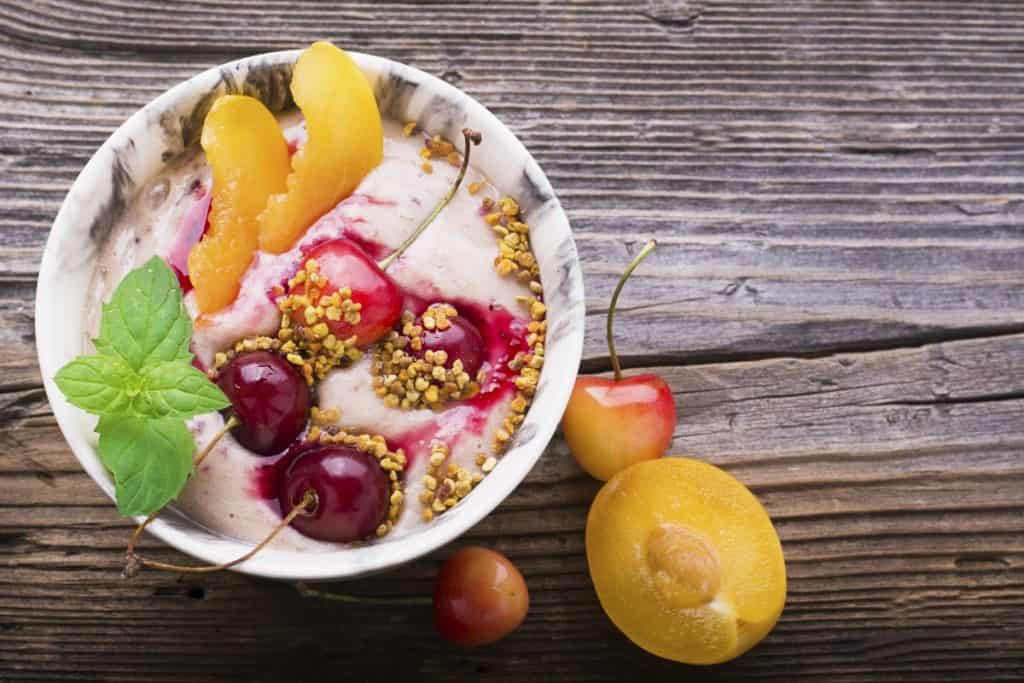
It is well known that bee pollen is difficult to digest by humans and other animals. In the above study they discuss the effects of shredding the pollen or placing it in warm water for 2 to 3 hours to help increase the percentage of digestion.
Here is another article discussing the potential health benefits of bee pollen from Medical News Today.
And for some guidance on selling pollen and bee propolis, I wrote 2 helpful guides that I recommend you read: how much money can you make selling your pollen, and how much money can you sell your bee propolis for.
3. Identify species of plant life – some beekeepers will harvest bee pollen to help identify the types of pollen that is being collected by their bees.
The individual grains of pollen are examined under a microscope to identify the different species in your local area. This is the least popular reason for collection pollen but I find this very interesting.
How To Collect Or Harvest Bee Pollen
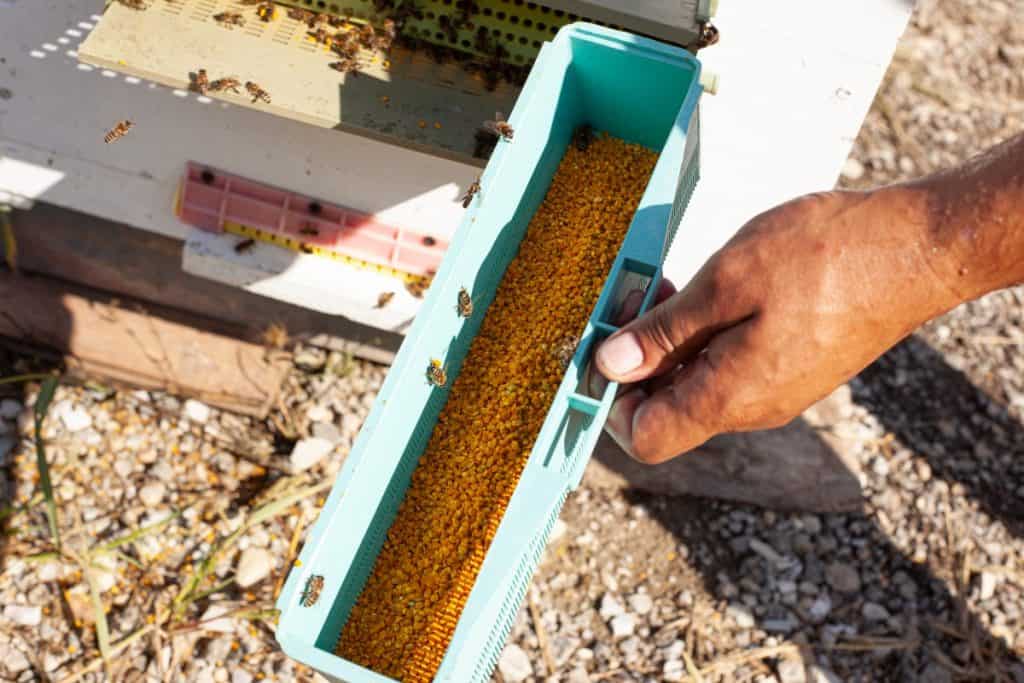
A pollen trap is added to collect pollen from your bees as they enter the hive. The trap fits over the entrance and forces the forager bees to crawl through small openings. As the bees crawl through these openings the pollen is stripped off and collected in a tray.
If you are going to use pollen traps make sure to block off any other entrances to the hive, otherwise the bees will simply avoid the traps. Also, experienced beekeepers have observed bees adapt and simply bring back a smaller amount of pollen so it doesn’t get knocked off by the pollen trap.
There is a wide variety of pollen traps available that are either top mounted or bottom mounted. This is a personal preference and will depend on your current bee hive setup.
If you are going to collect pollen it needs to be harvested on a daily basis. Pollen contains a high percentage of moisture and will begin to mold if not collected daily.
There is 3 common methods of storing or preserving your pollen:
1. Freeze the pollen immediately – I recommend this method if you have the freezer space.
2. Refrigerate the pollen – I also receommend this method if you don’t have the freezer space.
3. Dehydrate the pollen – if you choose this method I recommend using a simple food dehydrator. A dehydrator works very well in removing the moisture content, but may reduce the pollen’s potential nutritional content.
Is Collecting Bee Pollen Harmful To Bees
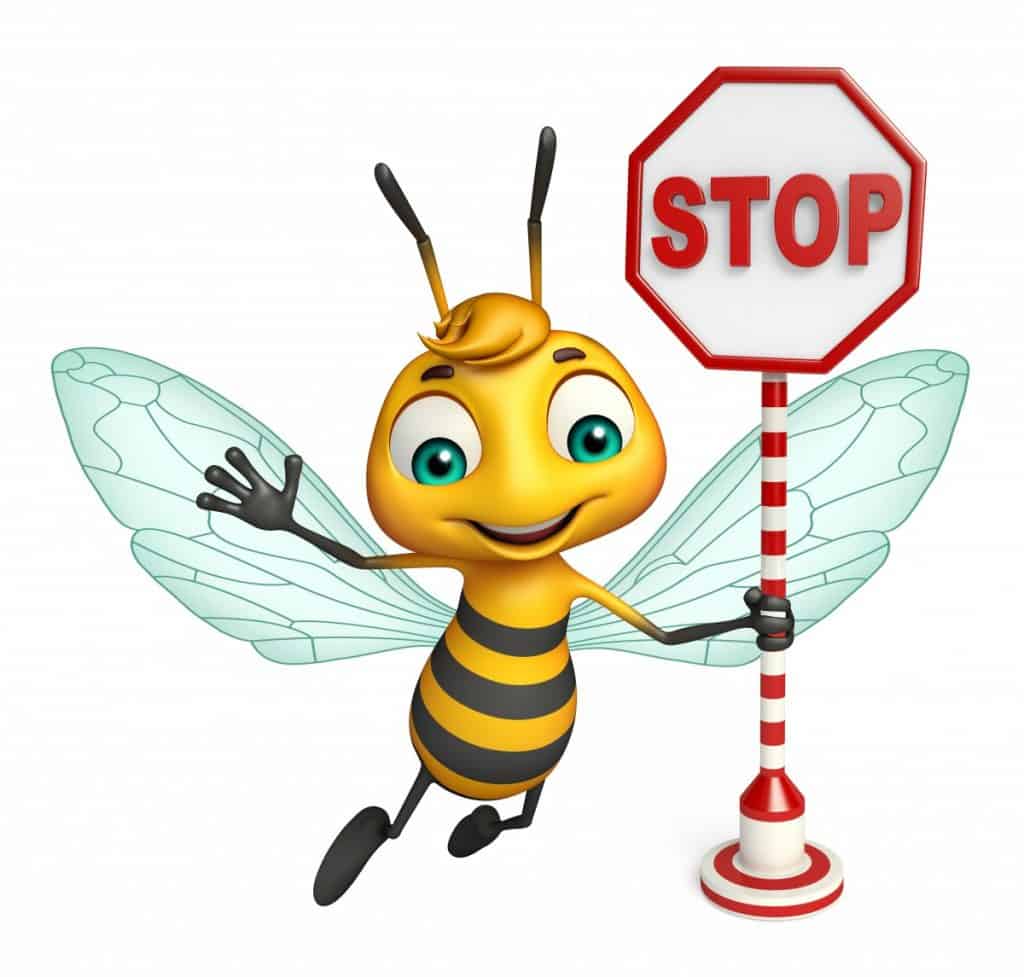
Collecting to much bee pollen can cause harm to your bee colonies. You would be removing a very important source of protein for the bees that is only available at specific times of the year.
Bees need the pollen as a primary food source to feed and raise their young. This is the reason why most pollen is stored in the frames closest to the brood frames.
If the pollen trap is too efficient and collects to much pollen this can be very tough on your bees and could potentially reduce their chances of survival. The reduction of pollen collected by the bees can cause nutritional stress on the colony.
Also reducing the size of the entrance by these traps causes congestion at the hive entrance. This slows down how quickly forager bees can bring in the needed nutrients for the colony.
I would recommend the following to help reduce the chance of nutritional stress:
- Only place pollen traps on large strong colonies.
- Only place traps for several days and them remove them for a period of time.
- Use front hive pollen traps since they are less efficient and will cause less stress on your colonies.
- Only use traps during strong pollen flows and again only a few days at a time.
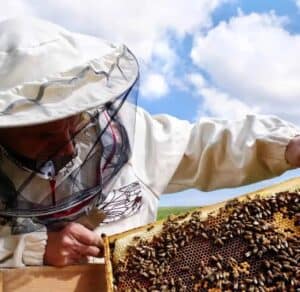
Joseph Davis
My goal is to show that anyone can take up beekeeping and it can be a very rewarding hobby. I strive to share my experiences and answer any questions you may have.
